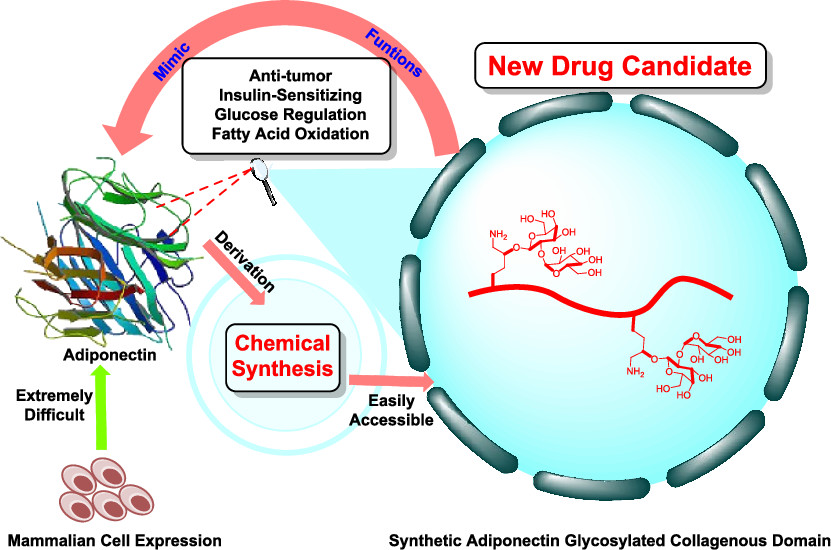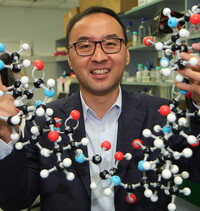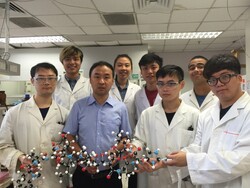
Listen to this article:
‘We are fully engaged to translate fundamental scientific discoveries into applications by developing a platform for innovative peptide-based drugs.’
Principal Investigator // Professor Xuechen LI, Professor of the Department of Chemistry and Inventor at Versitech Limited

Professor Xuechen LI
Professor at the Department of Chemistry and Inventor at Versitech Limited
In the ongoing battle against bacterial infections, Professor Xuechen Li and his team are revolutionising antibacterial medicine. They have achieved a breakthrough in rapidly synthesising cyclic peptide-based antibiotics, creating over a hundred new types. These antibiotics have proven effective in combating various illnesses, including pneumonia, skin infections, urinary tract infections, and other common bacterial infections. Acting as frontline soldiers, Professor Li's team fearlessly combat harmful bacteria, instilling hope in the fight against antibiotic-resistant strains.
Antibiotic resistance severely threatens public health as bacteria continuously evolve resistance to drugs. The overuse and abuse of antibiotics accelerate this process, leading to the emergence of ‘superbugs’ that resist antibiotic treatment. Without intervention, annual deaths from resistant infections could reach 10 million by 2050. Despite the urgency, big pharmaceutical companies hesitate to invest in developing new antibiotics, diminishing the market potential and exacerbating the scarcity of effective treatments.
‘Due to limited profit margins of antibiotics as compared to the drugs for chronic diseases, pharmaceutical companies have shown less interest in developing new antibiotics. This is mainly because the treatment duration is short, and antibiotic-resistant strains emerge rapidly,’ highlighted Professor Li. ‘However, this emphasises the crucial role that researchers must play in exploring new antibacterial compounds and finding innovative solutions to address the urgent need.’
To tackle this issue head-on, Professor Li's team has been wholeheartedly committed to studying bacterial resistance and developing antibacterial agents since 2009. They have exhibited exceptional innovation, competitiveness, and expertise in synthesising and studying the medicinal chemistry of cyclic peptide-based antibiotics — a promising yet often overlooked class.
Pioneering Research in Cyclic Peptide-Based Antibiotics
Cyclic peptide-based antibiotics have long been used for the treatment of various bacterial infections and have a proven track record of effectiveness in combating these pathogens. Traditionally, these antibiotics are obtained through fermentation, which is limited by the biological system’s constraints.
To overcome the slow production rate associated with natural fermentation, chemical synthesis provides a viable alternative, allowing for flexible structural modification and enhancement of therapeutic properties. However, synthesising cyclic peptide-based antibiotics is a complex process that requires innovative strategies and specialised techniques.
 In this regard, Professor Li's team has made significant strides through their pioneering work in Serine/Threonine ligation (STL), which provides a powerful tool for peptide and cyclic peptide chemical synthesis, leading to remarkable achievements in antibiotic development. Their breakthroughs include the total synthesis of daptomycin, a challenging task unresolved for 30 years. In 2013, the team utilised an in-house STL technology (J. Am. Chem. Soc. 2013) to achieve the first total synthesis of daptomycin, a type of cyclic peptide-based antibiotic.
In this regard, Professor Li's team has made significant strides through their pioneering work in Serine/Threonine ligation (STL), which provides a powerful tool for peptide and cyclic peptide chemical synthesis, leading to remarkable achievements in antibiotic development. Their breakthroughs include the total synthesis of daptomycin, a challenging task unresolved for 30 years. In 2013, the team utilised an in-house STL technology (J. Am. Chem. Soc. 2013) to achieve the first total synthesis of daptomycin, a type of cyclic peptide-based antibiotic.Furthermore, leveraging their in-house STL technology, they have made significant advancement in achieving the total syntheses of teixobactin (Nature. Commun. 2016), malacidin (Angew. Chem. Int. Ed. 2020) and mannopeptimycin (J. Am. Chem. Soc. 2021). Building on this success, the team swiftly and efficiently synthesised more than 100 structural analogs, leading to the discovery of a new generation of antibiotics, kynomycin, with extremely high antibacterial activity against both daptomycin-sensitive and resistant strains and low toxicity to mammals.
To further facilitate the development of kynomycin, the patent has been licensed to a mainland-based pharmaceutical company by HKU's Technology Transfer Office through its wholly-owned subsidiary, Versitech Limited. Currently, kynomycin is undergoing phase I human clinical trials, marking a significant milestone in its development.
Offering Hope in Combating Resistant Pathogens
The team has also synthesised other complex cyclic peptide antibiotics that show promise in fighting drug-resistant bacteria. In 2016, the team successfully synthesised teixobactin, laying the foundation for the creation of over 100 analogues. This breakthrough has deepened their understanding of these compounds and their potential clinical uses. In 2020, they reached a significant milestone by determining the absolute structure of Malacidin A, a potent antibiotic-targeting drug-resistant superbugs such as Methicillin-Resistant Staphylococcus aureus (MRSA) and Vancomycin-Resistant Enterococcus (VRE). In the face of escalating antibiotic resistance, Professor Xuechen Li's team offers hope for combating resistant pathogens through innovative approaches in antibacterial development.
‘With the technology and expertise we have acquired, our goal is to create a platform that enables the development of innovative cyclic peptide-based antibiotics. Through this platform, we aspire to bridge the gap between scientific discoveries and practical applications to address the pressing need for new antibiotics,’ Professor Li said.
| < Home | Next > |

